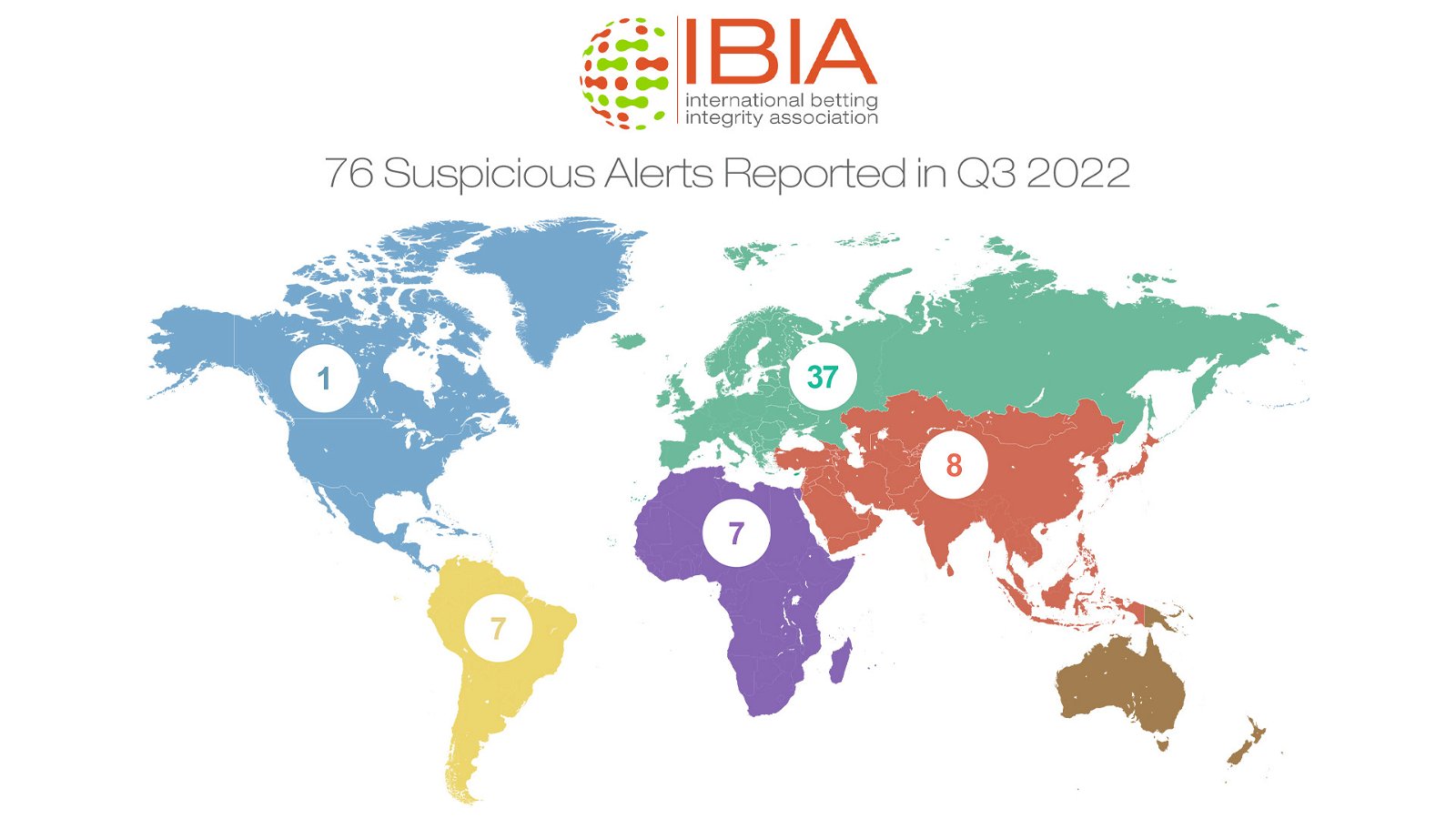The International Betting Integrity Association (IBIA) reported 76 cases of suspicious betting to the relevant authorities during the third quarter of 2022, according to a report published Wednesday. The Q3 total is a decrease of 15% when compared to the 89 cases in Q2, but up 17% from the 65 alerts in Q3, 2021.
The Q3 alerts covered eight sports, with the top four of tennis (33 cases), esports (16), football (13), and table tennis (10) accounting for 95% of all alerts. From a geographical perspective, the alerts spanned 29 countries with Europe accounting for around half (49%) of all alerts reported, followed by Asia (11%) and Africa (9%).
Khalid Ali, IBIA’s CEO, said: “Alerts for the quarter are at the higher end of the scale compared to previous years, but must be viewed against the association’s substantial growth in membership during the year. That has served to increase global market coverage and the alerts identified and reported, underlining the beneficial impact of a global multi-operator betting integrity network.”
“IBIA continues to work closely with its members and external stakeholders, such as sports and regulators, to ensure that suitable risk management processes are implemented and encourages a zero-tolerance approach to the manipulation of sporting events and associated betting fraud,” he added.
Khalid Ali
Other key data for Q3 2022:
- 60% decrease in football alerts compared to Q2 (32 alerts)
- 5 – the highest number of alerts recorded in a country (occurring in Spain, Hungary, and Poland)
- 16 esports alerts reported represents more than three times the number of esports alerts reported during the first half of 2022 (5 alerts)
The International Betting Integrity Association calls itself the leading global voice on integrity for the licensed betting industry. It claims to be run “by operators for operators,” protecting its members from corruption through collective action.
The association has longstanding information-sharing partnerships with leading sports and gambling regulators to utilize its data and prosecute corruption. It publishes quarterly and annual reports covering the integrity alerts reported through its monitoring and alert platform.



